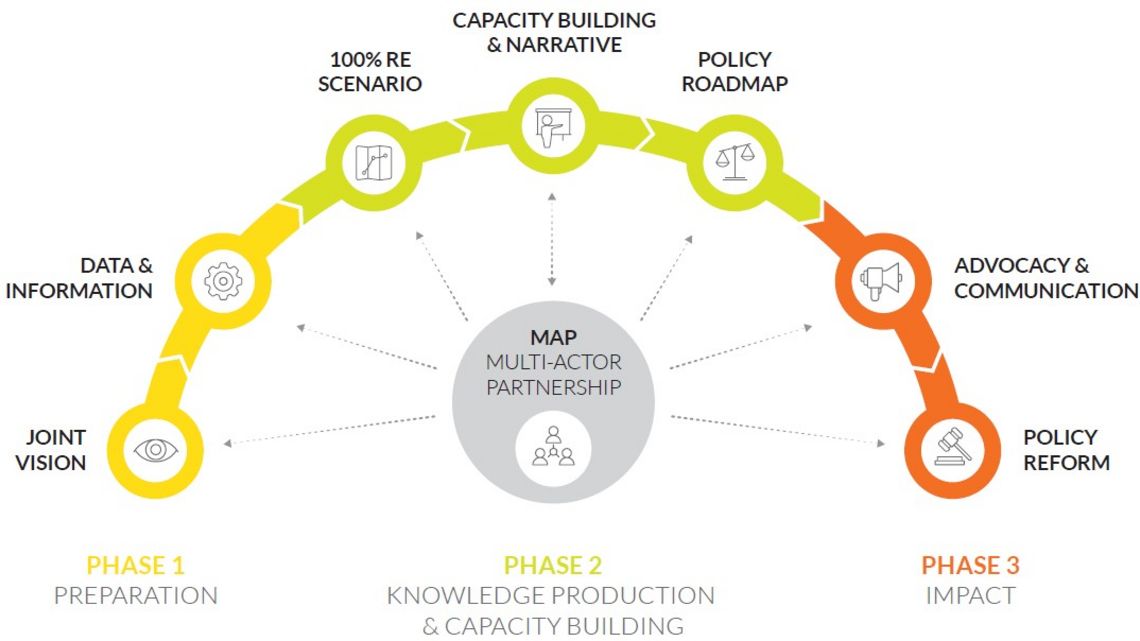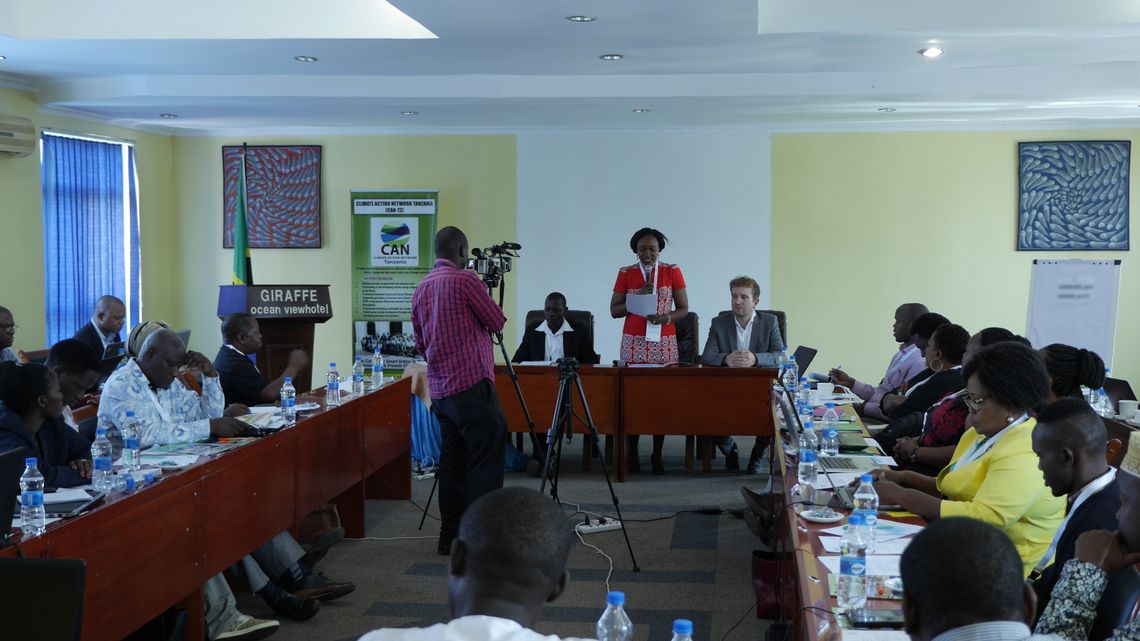“We are living in a crisis” – a sentence often heard in 2020, and an understatement. The truth is that we are living in a world full of crises: health, democracy, biodiversity and climate have been in a constant state of crisis for the better part of the year, some of them for decades, and no end in sight.
The spread of the coronavirus pandemic in spring 2020 saw severe containment measures being implemented all over the world, impacting our daily lives and slowing down or even stopping economic activities. At the same time, right wing populist parties are on the rise. We have seen nationalist policies being implemented at the detriment of the environment and people e.g. in Brazil and the US- the list goes on. Obviously, we are in the middle of a transformation with unknown outcomes. The question is whether we let right wing populists, pandemics and climate disaster shape our future or whether we are creating sustainable, equitable and resilient societies.
From depression to hope –positive mind-sets to design the transformation
We need to design a positive vision for the future –100% Renewable Energy (RE) can be such a vision. An energy system powered by 100% RE can serve as a means for sustainable economic development for urban and rural regions, can reduce air pollution we are all subjected to each day, ensure energy access for everybody and thereby can provide a stable source of energy for health facilities and schools, thus increases our resilience, and can increase democratic participation in the energy system. In short, in the vision of 100% RE no one is left behind. It can hence help move on from the decade of crises and transform it into a decade of action.
From vision to action – overcoming a decade of crises
To unleash the transformative power of 100% RE, we need to act quickly. Doing so requires frontrunners who are willing to engage in cross-sector and cross-governance processes, ones who are willing to work hand in hand and understand the needs of others as well as their own.
Civil society plays a key part in these processes. Civil society is a catalyst for change, a source of ideas and able to connect people on the ground and across governance levels and partners from industry, project developers, finance institutions, academia and others. Setting up such an in-depth engagement process with civil society at the heart, was the starting point of our 100% RE work.
The story so far
Brot für die Welt and the World Future Council started to work with CAN Tanzania back in 2015 to develop a joint vision of 100% RE for Tanzania. We engaged key energy stakeholders in a dialogue to develop a vision for Tanzania’s future energy system. The dialogue has taken shape in a variety of formats: bilateral meetings, workshops, political conferences, consultations, and site visits.
After establishing a group of key stakeholders, the idea emerged to develop a 100% RE scenario as a tool to demonstrate the feasibility of 100% RE as well as co-benefits of different energy pathways. Nowadays, CAN Tanzania is a close ally with the Ministry of Energy and Natural Resources. In many consultations, CAN Tanzania is sharing its expertise when it comes to matters of energy policy, RE project deployment and development cooperation, leading to inclusion of some of the project’s findings in Tanzania’s improved NDC (Nationally Determined Contribution). In fact, the process received international attention and led to similar processes in Bangladesh and Costa Rica as well. To empower civil society organisations to set up similar projects, we summarised key lessons learned in a new publication.
Lessons learned – the way towards 100% RE
Each of the countries we have worked in is different and there is no “one glove fits all” approach. However, in our latest publication we distil the lessons we have learned so far and hope to inspire others to start their own journey towards 100% RE:
It is the cheaper option. A 100% RE system is cheaper than a business as usual fossil fuel system. There are more investments required in the first ten years of the transformation, but fossil fuel costs savings can significantly finance the transition. In Bangladesh, fuel cost savings could cover 180% of the country’s investment needs for a 100% RE transition until 2050. 100%RE scenarios in Tanzania, Costa Rica and Bangladesh have shown that the average electricity price can drop when deploying renewables.
It provides energy access for everybody. Within 40 years (from the 60s onwards), Costa Rica has achieved almost 100% energy access through deploying community-based renewable energy power plants in rural regions, up from 50%. Based on our findings, 100% RE is the fastest way to energy access for everybody.
The storage question isn’t as big as we think it is. Quite often, the question about required storage capacities is being cited as a major challenge of the energy transition. In fact, most scenarios show that storage and dispatch requirements can remain with a maximum of 10-20% of total energy generation by 2050 and remain low in the near-term in a renewables powered energy system.
Limiting global warming to 1.5°C requires 100% RE. We need disrupting policies if we want to limit global warming to 1.5°C. This means higher ambition and bold policies are necessary. 100%RE across sectors can be such a disruption as it is the low hanging fruit when it comes to climate mitigation.
Building ownership is essential. Continued peer-to-peer policy dialogues for 100%RE foster relationships between sectors and increase ownership of the energy transition. Ownership needs to go beyond policy makers who are subject to re-election ever so frequently.
Relevance is key to success. Integration of renewables into the climate change and development agenda is necessary to meet international commitments. Therefore, RE needs to emphasise the manifold socio-economic linkages with other national or regional policy priorities such as creating local jobs, empower marginalised groups, reduce poverty, improve air quality. The implementation of Agenda 2030 might serve as a suitable and relevant framework for such an integrated approach.
Strengthen the policy-science interface. Talking about scenarios: these should be co-developed by modellers, civil society and policy makers alike, as experience has shown that policy makers are particularly keen on accessing knowledge and data relevant to the shaping of energy policy and national development, but are either unaware of existing models or have a hard time withdraw the needed data.
A huge transformation lies ahead of us. To design this transformation, everybody will need to think outside the box: the future cannot be shaped by ideas from the past. Hence, new alliances need to be built, people need to become part of the transformation, new approaches need to be tested and new business models need to be developed.
Let’s go 100% RE for all. Are you in?
Der Beitrag wurde gemeinsam mit Anna Skowron (World Future Council) verfasst.






